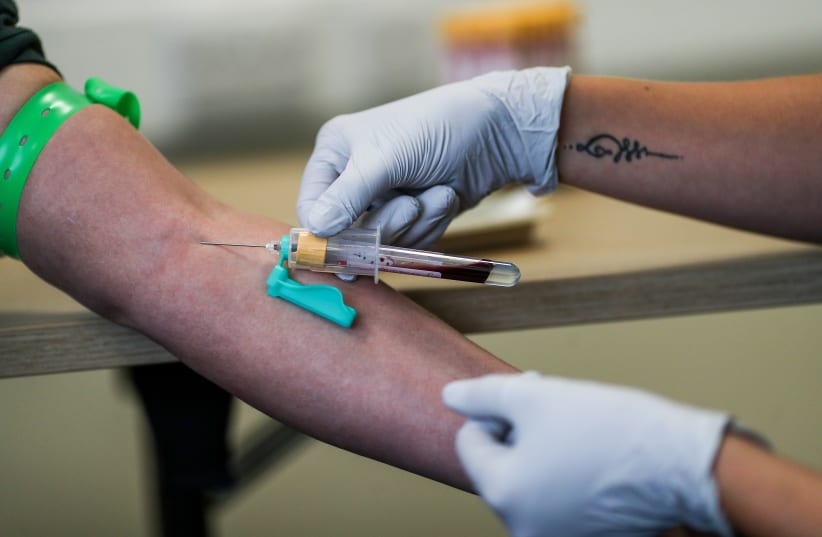Laboratory-grown red blood cells have been transfused into people in the first such clinical trial in the world, the United Kingdoms National Health Service announced on Sunday.
According to the University of Bristol, which worked on the RESTORE research initiative jointly with the NHS and the University of Cambridge, two people have been given the lab-grown cells and have so far had no side effects.
"This challenging and exciting trial is a huge stepping stone for manufacturing blood from stem cells," wrote co-chief investigator Ashley Toye, professor of Cell Biology at the University of Bristol. "This is the first-time lab-grown blood from an allogeneic donor has been transfused and we are excited to see how well the cells perform at the end of the clinical trial."
"This is the first-time lab-grown blood from an allogeneic donor has been transfused and we are excited to see how well the cells perform at the end of the clinical trial."
Prof. Ashley Toye
Artificial blood cells: What are they good for?
The red blood cells, manufactured using stem cells from donors, could revolutionize blood transfusions. Treatment for people with blood disorders that require regular blood transfusions, such as thalassemia or sickle cell disease, and people with rare blood types would be able to grow matching blood for transfusions. Manufactured cells could also last longer, decreasing the pace of transfusions patients would need.
"Patients who need regular or intermittent blood transfusions may result develop antibodies against minor blood groups which makes it harder to find donor blood which can be transfused without the risk of a potentially life-threatening reaction," said Dr. Farrukh Shah, Medical Director of Transfusion for NHS Blood and Transplant.
"This world-leading research lays the groundwork for the manufacture of red blood cells that can safely be used to transfuse people with disorders like sickle cell. The need for normal blood donations to provide the vast majority of blood will remain. But the potential for this work to benefit hard to transfuse patients is very significant."
The idea of using lab-grown blood cells is an ambitious and disruptive innovation in the medical field, one that a few companies are trying to make a reality.
Worldwide blood shortages have caused the deaths of millions every year all over the world, as the global supply of blood for transfusions hinges entirely on donations. Finding a way to have artificial and viable blood for transfusions would change the entire medical field as we know it.
One company trying to do this, for example, is the Israeli start-up RedC Biotech. However, the RESTORE project is another step in this direction.
However, at this time, the project is still in its trial phase and time is needed before its effects are proven.
At the time of writing, just two participants in the RESTORE project trials have been administered these lab-grown blood cells, but more will follow.
"We hope our lab-grown red blood cells will last longer than those that come from blood donors," said the University of Cambridge's Prof. Cedric Ghevaert, the project's co-chief investigator. "If our trial, the first such in the world, is successful, it will mean that patients who currently require regular long-term blood transfusions will need fewer transfusions in future, helping transform their care."
